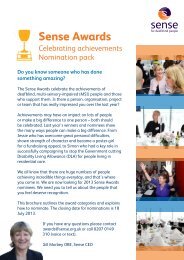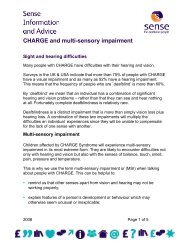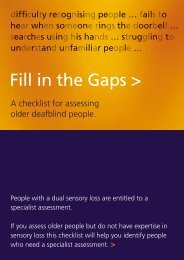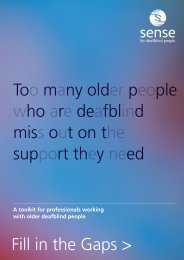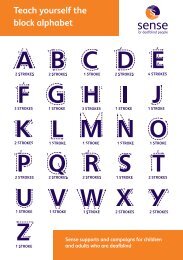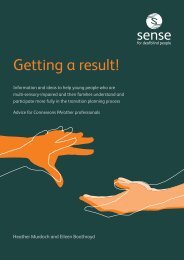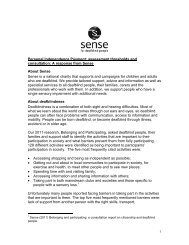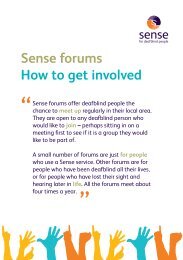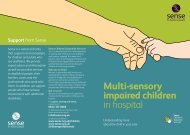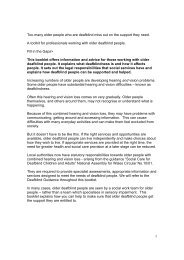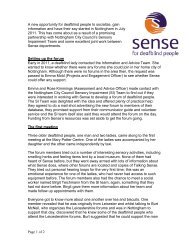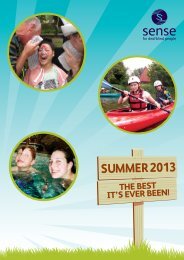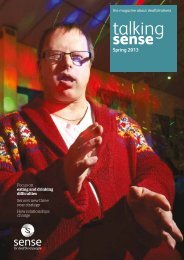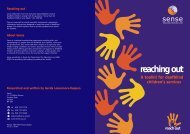MSI Unit Curriculum - Sense
MSI Unit Curriculum - Sense
MSI Unit Curriculum - Sense
You also want an ePaper? Increase the reach of your titles
YUMPU automatically turns print PDFs into web optimized ePapers that Google loves.
<strong>MSI</strong> <strong>Unit</strong> <strong>Curriculum</strong>: Phase 3One Monday in every four, Amanda goes on a day trip out with six other pupils.These trips either link to form specific projects (for example, repeated trips toSymphony Hall to work on a musical composition project), or they relate toother learning activities (for example, visiting Birmingham’s Ragmarket to buyfabric for class-wide co-operative weaving) (Understanding of time and place).Amanda’s classmates also visit the local shopping centre once a fortnight,buying individual pieces of fruit which they eat on return. Amanda does not yetaccompany them regularly because, whilst her self-control regarding objectshas improved greatly, it still needs to improve a little more for shopping to be apositive experience.Change and autonomyAmanda’s sight and hearing fluctuate, so that the information she receivesabout the world around is unreliable. Unanticipated changes to her routine canquickly make her confused and threatened, and she may respond by withdrawingor with impulsive and challenging behaviour. Many of Amanda’s school activitiesincorporate work on managing and responding to change – drama sessions, forexample, keep the same structure for a term at a time, but within this structurethe order and content of experiences vary from week to week (Responses toroutines and changes).Amanda is usually able to work co-operatively with an adult and, with support, toask for help when she needs it. Activities such as making her own drink help herlearn to identify when and what kind of help is needed (Ownership of learning).She will always need assistance with some activities, and the more she is able todirect others how to help her, the greater her autonomy will be.Amanda is gradually learning to tolerate activities not going to plan –sometimes because a task is difficult for her (sorting cutlery, for example);sometimes because routines are deliberately sabotaged by staff – perhaps thejug for her drink is missing, or she visits the bathroom before snack rather thanafter (Responses to routines and changes). These experiences are very carefullyplanned and Amanda’s reactions are watched very closely so that she can begiven as much support as she needs. Communication is key, in terms both ofcueing Amanda about imminent events, and of responding to her symbols andsignals.84



